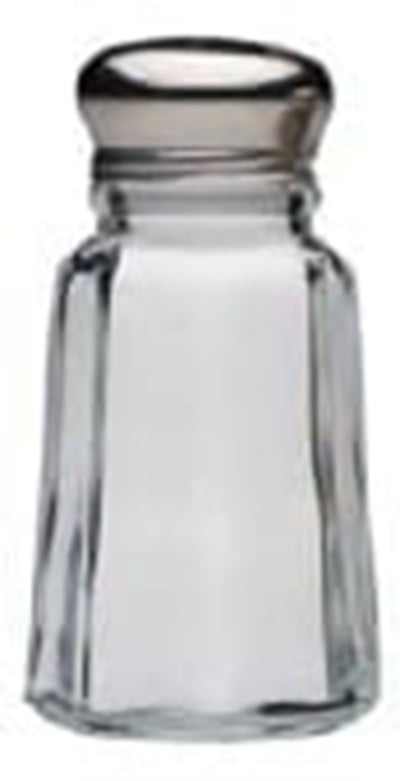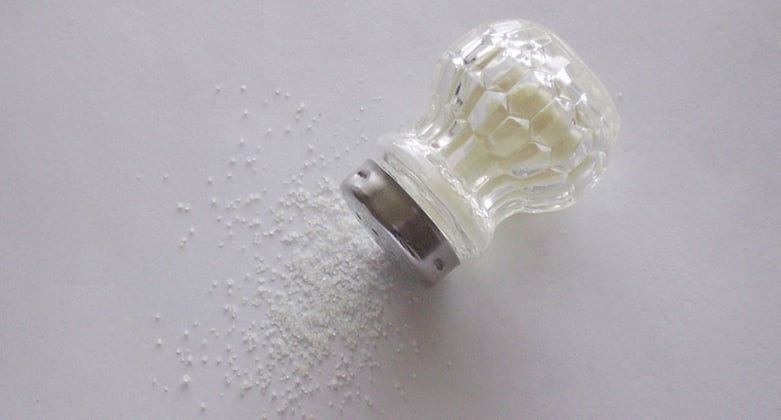Salt isn’t just bad for your blood pressure, a new study says. Salt can also cause damage to your blood vessels, heart, kidneys and brain, researchers learned.
The UMHS Endeavour looks at a University of Delaware study published last week in the Journal of the College of Cardiology and what its findings mean regarding salt intake for the general public and future doctors at American and Caribbean medical schools.
Salt’s Effect on Organs & Tissues
 High amounts of salt can be harmful to many organs and tissues, even for people who are “salt resistant,” meaning their salt intake doesn’t affect their blood pressure. The study, outlined in a story on Medline Plus, a service of the U.S. National Library of Health/National Institutes of Health.
High amounts of salt can be harmful to many organs and tissues, even for people who are “salt resistant,” meaning their salt intake doesn’t affect their blood pressure. The study, outlined in a story on Medline Plus, a service of the U.S. National Library of Health/National Institutes of Health.
Researchers looked at evidence of high salt intake and how it leads to “reduced function of the endothelium, which is the inner lining of the blood vessels.” Researchers found that the endothelial cells “are involved in a number of processes, including blood clotting and immune function.”
Using a lot of salt increases artery stiffness, the researchers said.
(Photo, inset right): Courtesy of MedLine Plus
"High dietary sodium can also lead to left ventricular hypertrophy, or enlargement of the muscle tissue that makes up the wall of the heart's main pumping chamber," said study co-author David Edwards, an associate professor in kinesiology and applied physiology at the University of Delaware, in a university news release. "As the walls of the chamber grow thicker, they become less compliant and eventually are unable to pump as forcefully as a healthy heart.”
The study also found that high salt intake harms kidney function.
In addition, too much salt can be harmful to the brain. “"Chronically elevated dietary sodium may 'sensitize' sympathetic neurons in the brain, causing a greater response to a variety of stimuli, including skeletal muscle contraction,” said study co-author William Farquhar, a professor and chair applied physiology at the University of Delaware. “Again, even if blood pressure isn't increased, chronically increased sympathetic outflow may have harmful effects on target organs."
He said in the news release, "Chronically elevated dietary sodium may 'sensitize' sympathetic neurons in the brain, causing a greater response to a variety of stimuli, including skeletal muscle contraction.”
William Farquhar added that even if blood pressure is not increased, “chronically increased sympathetic outflow may have harmful effects on target organs.”
(Top photo) NOT JUST BAD FOR YOUR BLOOD PRESSURE: A University of Delaware study found high salt intake can harm your blood vessels, heart, kidney & brain. Photo: Wikimedia Commons
About UMHS:
Built in the tradition of the best US universities, the University of Medicine and Health Sciencesfocuses on individual student attention, maintaining small class sizes and recruiting high-quality faculty. We call this unique approach, “personalized medical education,” and it’s what has led to our unprecedented 96% student retention rate, and outstanding residency placements across the US and Canada. UMHS is challenging everything you thought you knew about Caribbean medical schools.

Scott is Director of Digital Content & Alumni Communications Liaison at UMHS and editor of the UMHS Endeavour blog. When he's not writing about UMHS students, faculty, events, public health, alumni and UMHS research, he writes and edits Broadway theater reviews for a website he publishes in New York City, StageZine.com.
















